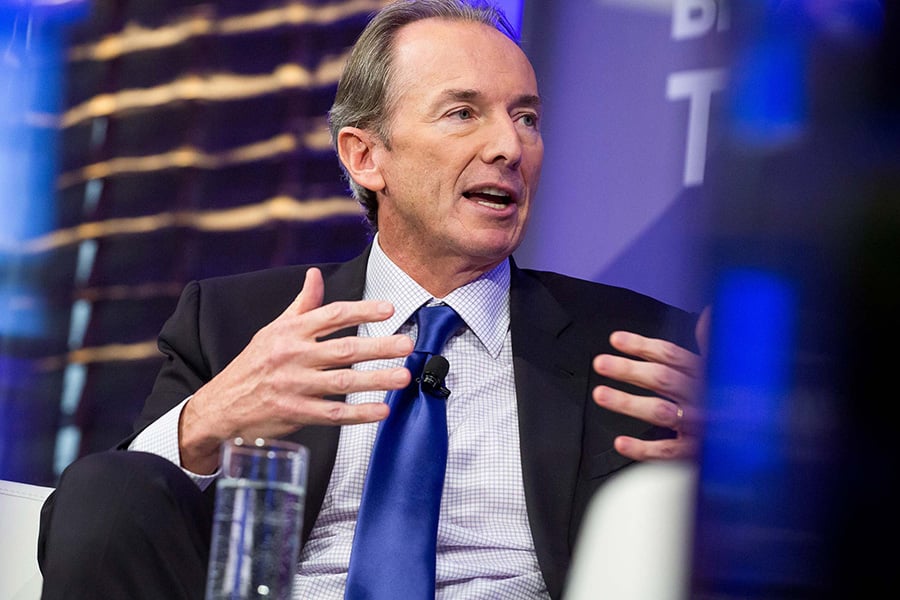

Morgan Stanley won’t cut its workforce this year even as the coronavirus pandemic sends markets into turmoil.
Chief Executive James Gorman told employees in a memo Thursday that the bank will take stock at the end of the year after central banks and governments have time to try to stabilize the economy.
“I am sure some, if not many, of you are worried about your jobs,” Gorman wrote in the memo. “While long term we can’t be sure how this will play out, we want to commit to you that there will not be a reduction in force at Morgan Stanley in 2020. Aside from a performance issue or a breach of the code of conduct, your jobs are secure.”
The bank’s shares are down 30% this year as banks have been pummeled by concerns that surging unemployment will spur loan losses while low interest rates weigh on margins.
About 90% of Morgan Stanley’s employees are working from home, Gorman said, as businesses around the world close down or keep their staff away from offices to stem the spread of the highly contagious virus. The “normal bonds created by everyday interaction with colleagues have surely been impacted,” Gorman said in his memo.
The memo follows Bank of America Corp.’s announcement last week that it’s hired 1,700 people so far in March. Most of the positions are in the bank’s consumer business, along with some support staff in its operations units, the lender said. JPMorgan Chase & Co., meanwhile, froze hiring across most of the firm, people familiar with the matter said this week.
In a memo last week, Gorman told employees that the economic turmoil doesn’t represent a crisis for the large banks, unlike in the 2008 recession, according to people with knowledge of the matter. Morgan Stanley and seven other giant U.S. banks have suspended stock buybacks, saying they will focus on supporting clients and the nation during the pandemic.
Morgan Stanley’s economists are among those on Wall Street who have declared that the pandemic has triggered a global recession. The bank’s team, led by Chetan Ahya, said a worldwide recession is now its “base case,” with growth expected to fall to 0.9% this year.

A Texas-based bank selects Raymond James for a $605 million program, while an OSJ with Osaic lures a storied institution in Ohio from LPL.

The Treasury Secretary's suggestion that Trump Savings Accounts could be used as a "backdoor" drew sharp criticisms from AARP and Democratic lawmakers.

Changes in legislation or additional laws historically have created opportunities for the alternative investment marketplace to expand.

Wealth managers highlight strategies for clients trying to retire before 65 without running out of money.

Shares of the online brokerage jumped as it reported a surge in trading, counting crypto transactions, though analysts remained largely unmoved.
Orion's Tom Wilson on delivering coordinated, high-touch service in a world where returns alone no longer set you apart.
Barely a decade old, registered index-linked annuities have quickly surged in popularity, thanks to their unique blend of protection and growth potential—an appealing option for investors looking to chart a steadier course through today's choppy market waters, says Myles Lambert, Brighthouse Financial.
